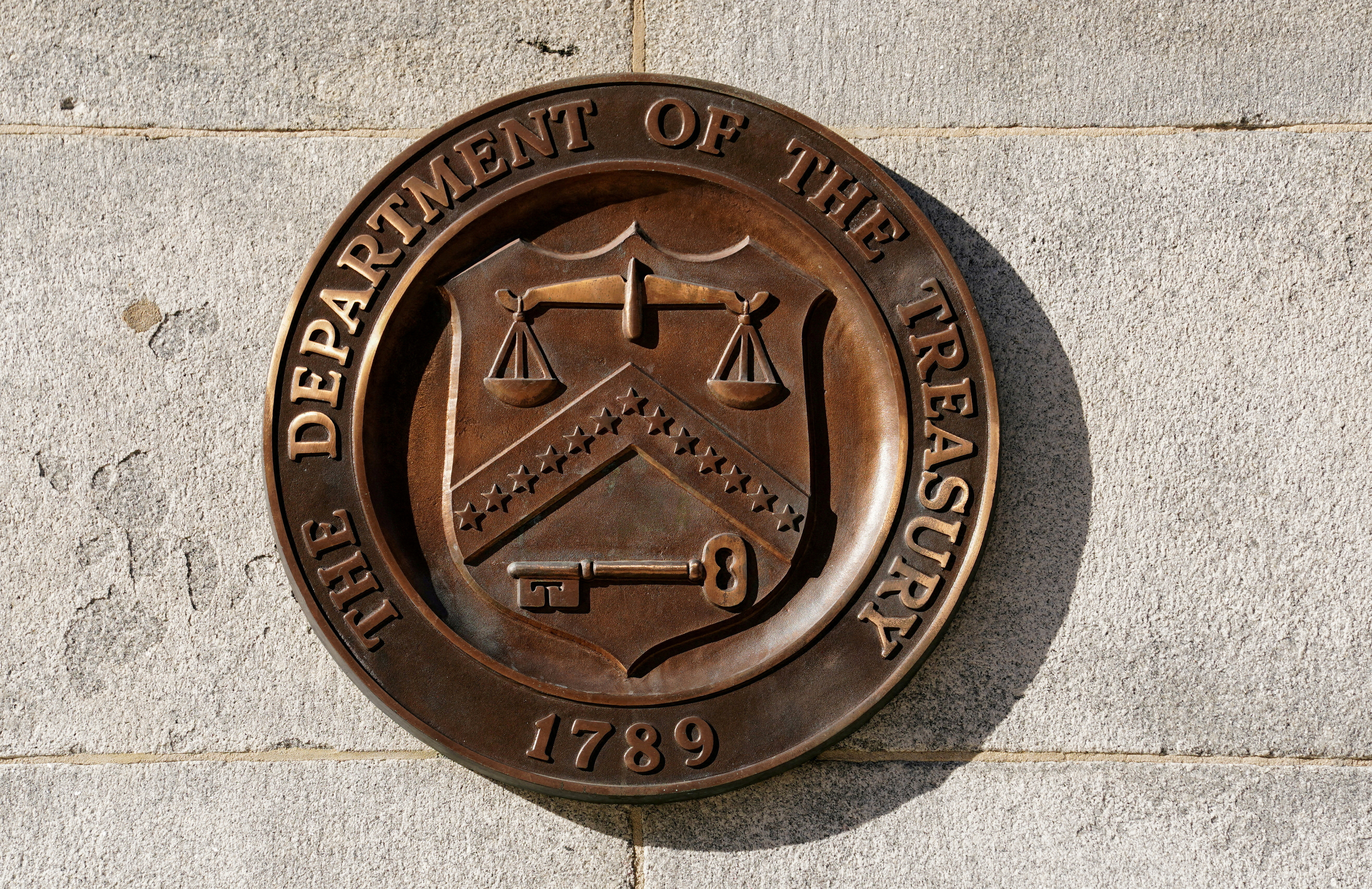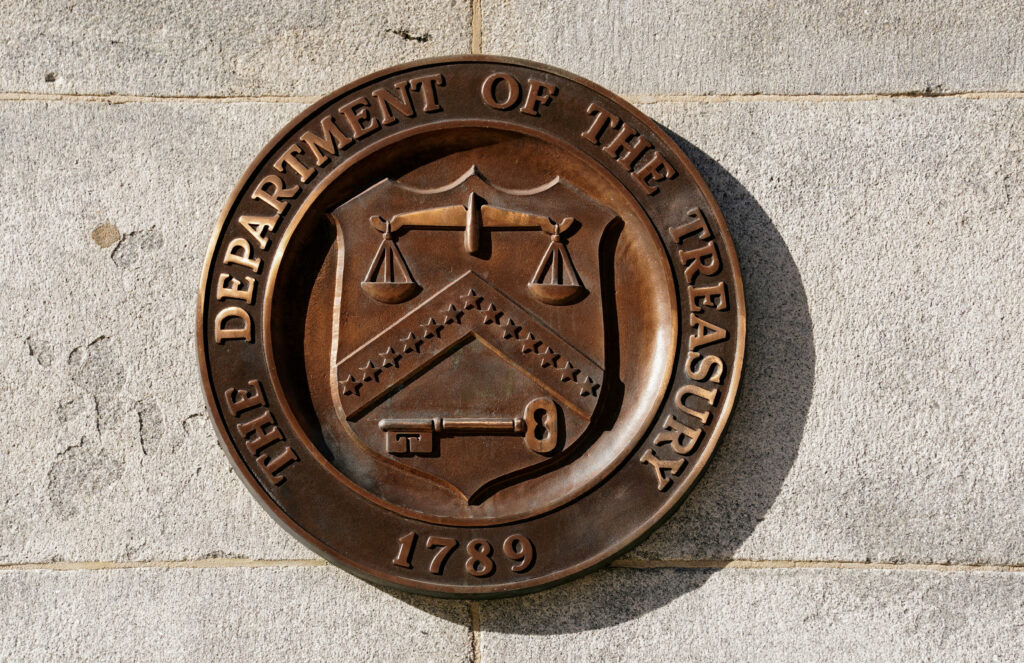
A bronze seal for the Department of the Treasury is shown at the U.S. Treasury building in Washington, U.S., January 20, 2023. REUTERS/Kevin Lamarque/File Photo Acquire Licensing Rights
MARRAKECH, Morocco, Oct 8 (Reuters) – The U.S. Treasury Department is pushing the World Bank and regional multilateral development banks to complete work on new rules for leveraging shareholder capital commitments to boost lending capacity by April 2024, a senior Treasury official said.
Giving more value to callable capital — commitments by shareholders to supply additional resources in the event of severe financial problems — in the bank’s balance sheets could unlock “significantly more financing” for developing countries, said the official, who was not authorized to speak publicly.
U.S. Treasury Secretary Janet Yellen has been pushing for reforms to expand the World Bank’s lending for a year, after an expert panel review concluded that the institutions, government shareholders and credit rating agencies were too timid about financial risks.
Some experts argue that developing and emerging economies need $2.4 trillion per year to meet global climate challenges – a number that far exceeds the amount of financing now available.
The World Bank last month released proposals that would boost its lending to developing countries by an additional $100 billion over a decade as part of ongoing changes aimed at expanding the bank’s mission to include climate change.
The Treasury official said World Bank governors were expected to sign off on the new measures this week and mapped out previously unreported details on the callable capital issue, including the timetable for action.
The official said Treasury has already drafted terms of reference on callable capital for the World Bank and regional MDBs, and is asking the institutions to set up working groups and carry out stress tests to tee up decisions on the issue in spring 2024, the official told Reuters in an interview.
“That’s what we’re driving very hard toward,” the official said.
The official declined to estimate how much extra funding could be freed up, noting that further discussions were also needed with the credit ratings agencies, but said the amount would be likely considerable.
Treasury is also working on a template for major MDB shareholders on how to assess the impact of callable capital commitments in their budgets in the event that a call on the capital were to happen, the official said.
“We want to allow for the specificities of each bank, but make sure there’s a commonality, so we actually then can have discussions with other stakeholders and very importantly, the ratings agencies,” the official said. “That could unlock significantly more financing.”
Any new proposal on treatment of callable capital will require approval by the shareholders of each of the respective multilateral development banks, bank officials have said.
An independent assessment commissioned by the Rockefeller Foundation last month concluded that the World Bank’s main lending arms could boost lending to nearly $900 billion if the rating agencies modified their procedures on callable capital.
The official said the World Bank’s governing body would endorse a new vision statement – “to create a world free of poverty on a livable planet” – and a slew of other reforms when they meet in Marrakech, Morocco, this week during the annual meetings of the International Monetary Fund and World Bank.
“You’ve got to work on global challenges like climate fragility and pandemics and poverty and boosting shared prosperity all at once because they are all mutually reinforcing and intertwined,” the Treasury official said.
Reporting by Andrea Shalal; Editing by Mark Porter
: .


